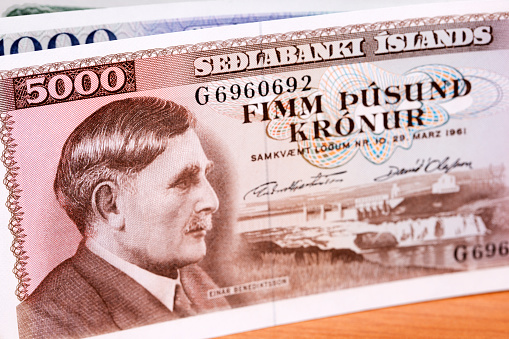The Iceland Economy
Located in the Nordic countries, Iceland is a small island nation that is known for its dramatic landscape and geysers and volcanoes. Most of its population lives in the capital of Reykjavik, and the city runs on geothermal energy. It also has a museum that highlights Viking history.
Aluminum smelting
Throughout the last quarter century, the Iceland economy has grown to a size where it has been able to attract heavy industry, primarily in the form of aluminium smelting. This growth has come at a cost. The aluminium industry’s profits have left Iceland for overseas parent companies.
In order for the aluminium industry to grow, production facilities must be located near reliable energy sources. In Iceland, the government has been aggressive in developing power-intensive industries. In 2010, the total power used by the aluminium industry was 73% of the total power consumed by the country.
The aluminium industry employs more than one thousand people in Iceland. However, only a small proportion of these workers are permanent employees. Instead, most workers are contract labour.
The Alcoa Fjardaal smelter is located in eastern Iceland. It uses five million megawatt hours of electricity every year. The majority of workers at the smelter have been working there for less than ten years. They have a turnover rate of 20%. The company tries to push them to work harder, and they are sometimes forced to work at night.
There are a few ten-year employees at the smelter, and they often get more work when they are on shift. The company also has a bonus system that rewards workers for quality and quantity. Workers are fined if they break a machine or deliver poor alumina.
The workers at the Fjardaal smelter feel misled by the company. They believe that the company has been deliberately hiding dangers from them. In addition, they believe the company deliberately hides dangerous work conditions. In a meeting, they are told that Fjardaal is the most dangerous smelter in Europe.
Fishing
Despite its comparatively small size, the fishing industry is a core part of the Icelandic economy. The sector is estimated to contribute between seven and ten percent of the country’s GDP over the past five years.
The Icelandic fishery sector is managed by the Directorate of Fisheries, which monitors fish landings in Icelandic waters and collaborates with the Icelandic Marine Fisheries Institute. Efforts to enforce area closers have helped to ensure the long-term sustainability of fishing in Iceland’s waters.
Iceland’s fisheries are among the most efficient in the world. The quota system ensures that the industry’s catch is fully extracted from the resource. Several international studies confirm this. The industry has invested in state-of-the-art technologies to link fishing with processing.
Iceland’s fishing industry is highly diversified. It employs five percent of the labour force, and the sector contributes around 17 percent of goods and services exports by value. The industry also includes a wide variety of ancillary businesses, including fish processing plants, logistics, and packaging.
A major development in the sector’s management is the catch limitation system, which was introduced in the 1980s. This has helped to increase the profitability of the industry. The system has also helped to reduce the impact of overfishing.
The industry has invested in innovative ancillary businesses, such as assembly lines equipped with waterjet technology, to help ensure that no part of the catch goes to waste. Using this technology, Iceland’s fishing companies have been able to dispatch more high-value product. The increased air connectivity has also supported the export of fresh fish.
In addition, Iceland’s fishing industry is a leading contributor to the country’s environmental sustainability. Its quota system has been recognized internationally for its efficiency.
Tourism
During the past decade, tourism has grown to become an important economic driver for Iceland. It has contributed over 5 percent of the country’s GDP. This is the first time the number of tourists has exceeded one million.
The tourism industry has been growing in Iceland for years, but recent developments have made it clear that it may be headed for a slowdown. The economy is expected to contract 7.1 percent in 2020, and many economists predict that the fishing, manufacturing, and tourism industries will be among the hardest hit.
The Icelandic Tourist Board has been conducting surveys, and the OECD has published a report on the same topic. They recommend a few things to make the tourism industry more sustainable.
One of them is the use of social media. This is not necessarily a positive thing, however. Many people tie social media to tourism growth in Iceland. However, the downsides to such a phenomenon include increased vandalism, littering, and displacement of locals.
The OECD has also recommended a more scientific approach to establishing tourist destinations. The report recommends that the government and other stakeholders consider factors such as capacity, environmental concerns, and the costs of caring for the environment.
The OECD also recommended that Icelandic electricity prices be reassessed to account for the costs of caring for the environment.
Iceland has a relatively small population, and it needs visitors to keep its tourism industry growing. However, increasing numbers of tourists are straining fragile ecosystems, and are eating away at budgets.
The OECD has also suggested that Iceland should make its tourism industry more sustainable. The country has to devise a vision for the future, and provide environmentally-friendly tourist facilities. It also needs to define its uniqueness as a tourist destination.
Laws regulating business practices
Several sources of law are applicable in the Icelandic economy. These include international treaties and the EEA Agreement. They also include Iceland’s constitution, which provides that no person may be forced to surrender property. The constitution also provides that full compensation must be paid.
Iceland’s laws on business practices are generally consistent with those of OECD member states. The country ranks 12th out of 190 economies in the World Bank Doing Business List.
The Icelandic Government has worked to reduce regulatory burden. Some restrictions apply to investments by non-residents. These include some sector-based restrictions, such as those related to the fishing industry. Large-scale investment projects are usually exempt from these restrictions. Some restrictions apply to all non-residents, while others are applicable only to investors from other EEA member states. In addition, the Minister of Justice can grant exemptions to business owners.
Iceland’s judicial system includes eight District Courts, a Court of Appeal, and the Supreme Court. The Supreme Court is Iceland’s highest court. This court is responsible for interpreting Icelandic law in accordance with international obligations.
In response to the 2008 financial crisis, Iceland’s government established an office to protect the economic rights of individuals and households with over-debt. This office handles hundreds of complaints each year. These complaints are mainly due to a general disillusionment with public institutions in the aftermath of the banking collapse. The office also has considerable authority in administrative law.
Iceland is a member of the World Trade Organization and the EEA Agreement. As such, the Icelandic Government has been legally obliged to adopt EU directives. This has affected Icelandic legislation considerably.
Iceland is also a member of the ICESCR. This organization’s members are countries that have signed the Convention and are party to its International Covenants.
EU accession negotiations
Despite the controversies, Iceland has shown good progress in the formal EU negotiations. The country is well-equipped to make a smooth transition into the European Union. However, some questions remain. The most pressing issues are the nature of the EU-Iceland pact and Iceland’s position in the EU’s fisheries quota system.
Several EU countries have been involved in mackerel fishing, which generates 40 percent of Iceland’s export incomes. However, the EU Commission is not happy with Iceland’s approach to catching mackerel. The EU would like to see a fair fisheries agreement in order to reduce Iceland’s reluctance to vote for EU membership.
The fisheries chapter is the most important. However, Iceland’s position in the Common Fisheries Policy is incompatible with its economic interests. The EU claims Iceland has caught too much mackerel in the North Sea. The EU also accuses Iceland of not considering replacement plans.
Despite Iceland’s opposition to the EU, it has made a lot of economic progress. In 2014, Iceland’s GDP grew by 1.9%. The country’s economy has recovered from the 2008 financial crisis. The government is encouraging people to remain employed and to continue its efforts to reduce unemployment.
The government is also supporting a well-informed debate about EU membership. The European Commission is reportedly considering setting up an information centre in Iceland. MEPs point to this as an opportunity to inform Icelandic citizens about the EU.
However, the smallest, and possibly the most important, achievements in the Icelandic and EU accession negotiations have been a bit less obvious. Iceland has closed about one-third of the chapters in its formal negotiations. But the most challenging chapters have yet to be opened. The most important chapter is arguably the fisheries one.



